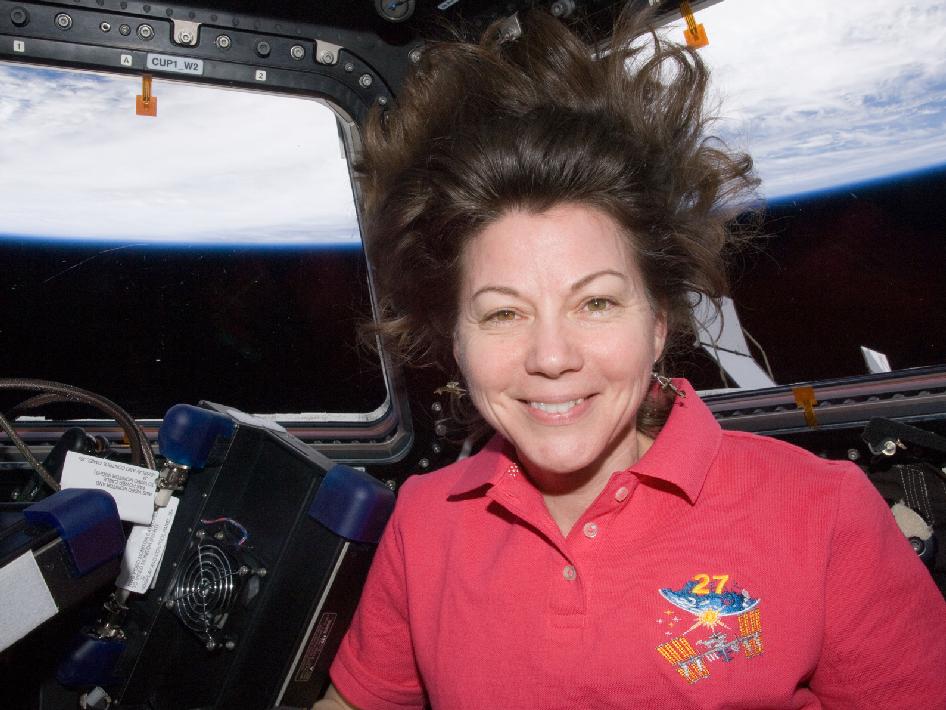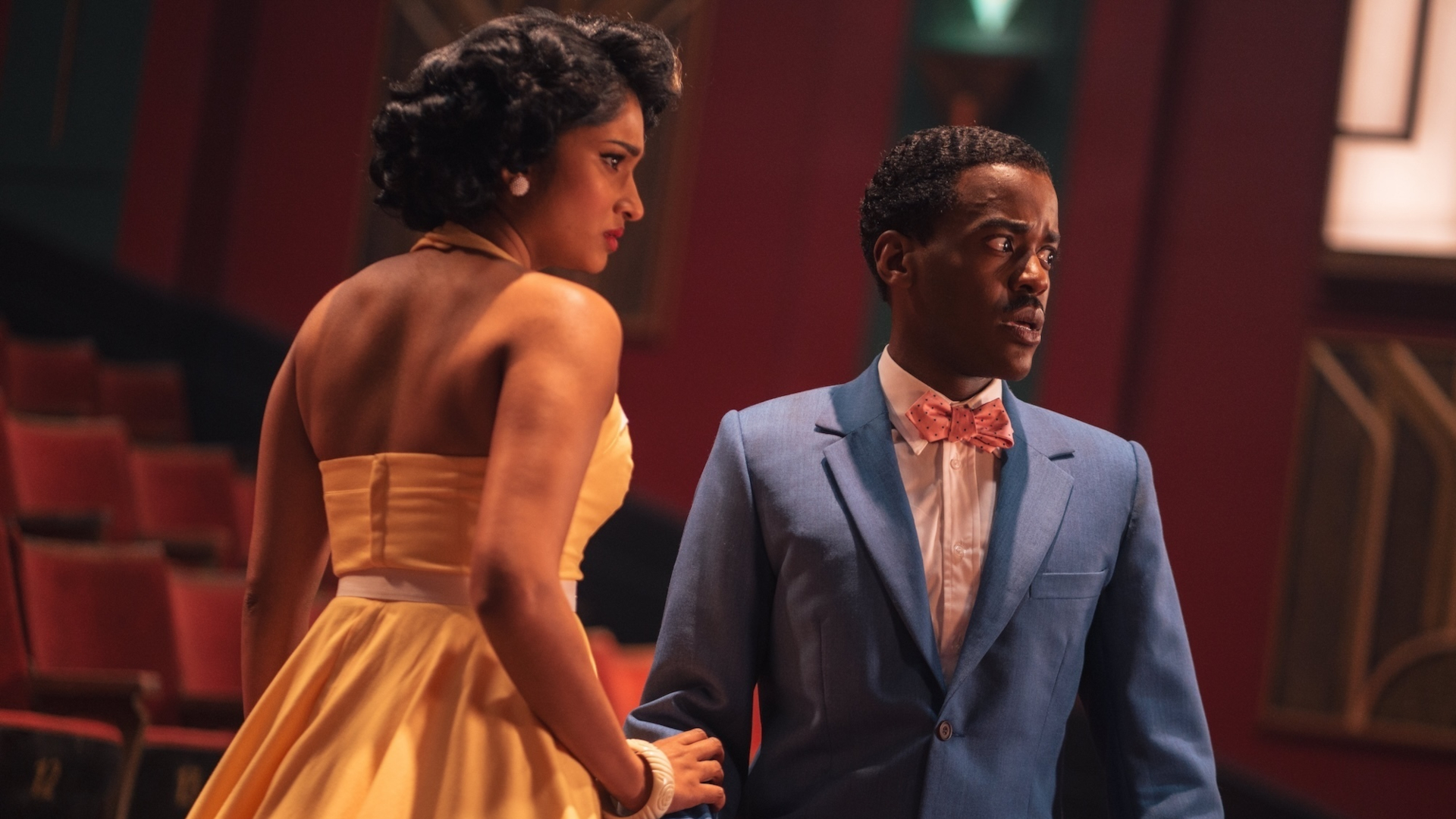Interview: Astronaut Cady Coleman on SpaceX's historic Demo-2 launch for NASA
The first crewed mission from SpaceX to the International Space Station is, weather permitting, going off on Wednesday. The use of the new Crew Dragon capsule with two astronauts with a Falcon 9 rocket returning to Earth and landing on the Drone Ship has everyone's eyes pointed at the sky.
The National Geographic broadcast event "Launch America: Mission To Space Live" will be helping present the event to the world, and to help better understand the significance of this launch they linked us up with retired astronaut Cady Coleman for a better explanation.
Webcasts: How to watch SpaceX's Demo-2 astronaut launch online
Full coverage: SpaceX's historic Demo-2 astronaut launch explained

Space.com: So this is this is the first non tourism launch on US soil since 2011. Can you talk about why you think that's a significant thing?
Cady Coleman: I think it is important because, physically as a species we're going to explore. We're going to go further. And you can either do it the long and hard way or you can do it the way that makes sense, which is, you know, get all the experience and data that you can about how to live in space and get to Mars. Having the capability to launch from the US will mean we have a little more control over the who, how, and when. It's a great addition to our toolset.
I myself launched with the Russians from Russia and was so happy to be doing so. They are very, very good at doing this. And I would go again with them in a minute. At the same time, more roads to space is just better for everyone in terms of understanding the path and understanding exploration.
Space.com: Our collective focus on space exploration has changed a lot, culturally, in the last 20 years. Do you think that this this shift has impacted the number of kids who want to be astronauts when they grow up?
Get the Space.com Newsletter
Breaking space news, the latest updates on rocket launches, skywatching events and more!
Coleman: Yes, and I say that especially to your readers because I think that popular media, whether it is commercials, or shows, or movies, or big events, when kids can see themselves in these venues, that's when they realize that they can do anything that they want to do. And I would point out, like with "The Martian" movie, I think that people saw that movie and just made it just kind of real, like, Wow, he really might go to Mars. NASA has applications for astronaut when they opened it up, tripled.
And the reason that's so significant, applications went from 2,400 people when I applied to like 6,500 in 2010 or so. Then "The Martian" movie premiered, and we had an astronaut selection, I think it was 18,500 people a single wave.
I think it's really important and, and that's why I'm so dedicated about being part of this launch event as a retired astronaut. Helping share the story and helping interpret the story for some of the media. If you just take the pictures that are going to come from tomorrow, you're going to see two white guys in really cool spacesuits climb into a really cool rocket and go to space. There's a part of the population that's going to get a subliminal message says *by the way, this might not be you*. We can't afford that when we think about creating our future. I think every child should realize this is something so big and great and amazing that they can be those people.
Space.com: That that actually rolls nicely into my next question. With a grand total of 65 women making up the 565 space travelers we've ever had. How do you talk to young women about the additional hurdles that they face when entering a program like this?
Coleman: I'd like to encourage them to be themselves. And I'd share experiences that I've had that makes them realize no one just sort of waits until suddenly, as an adult, NASA says, okay, we've been waiting for you to grow up, are you ready, come and be an astronaut.
It doesn't happen that way really, you have to prepare yourself. You have to make sure that you're ready for the opportunity. I would tell my stories in a way that they think they are the people who can do these things.
Space.com: So we live in a weird time with reusable rockets. Now, watching the the Falcon 9 do its thing is always an incredibly cool thing for me to see. How has this change been for you to observe?
Coleman: I think I've been equally thrilled. I love to watch those launches. And, you know, my sort of traditional brain has been interested but also thinking all of this is hard and people should be ready, this might not work on the first try. SpaceX has been so successful though and it makes me recalibrate that.
There's something really exciting about somebody doing it differently, and then being successful. And I put our other commercial partners in that same bucket, SpaceX happens to be launching right now. This is the beginning of the season of test flights. Boeing is getting ready to launch. It's really just a very exciting time.
Space.com: Now, as I understand it, Demo-2 doesn't have a planned return date right now, but its solar panels have an expected lifespan of just over 100 days. Do you know what the decision making process looks like for bringing those astronauts home?
Coleman: I do not, but I can speculate with the rest of folks. This is a test mission, they're evaluating and trading objectives as they go and we're going to see how the craft performs. They're going to see what things still need to be proven functional. It's balancing this research with wanting to send the next craft up, but not before they've met all the objectives they need to.
I think it depends what kind of work is being done up on the space station, how much we need their help up there, when the next craft could get up there. There's a lot of different dependencies and none of them are concrete.
Space.com: Do you feel, overall, SpaceX is a net positive in getting people excited about our space endeavors?
Coleman: I do. Little kids ask us "Did you always want to be an astronaut?" One of my crew-mates was like well, you know, of course, like any astronaut that's how I grew up.
And I said, Well, you know, it wasn't like that for me. I mean, it never occurred to me to be an astronaut until I met one in college.
And so when you say a positive influence, the fact that they have the capability to put up a red car in a rocket. I mean, NASA is a government organization and they really wouldn't have any choice but to do something a little more sensible. Elon put his red car in space and people know, and I really appreciate the value they put on making people notice.
I like that they're making people notice, because what we're all doing is important.
- How SpaceX's Crew Dragon Demo-2 mission will work in 13 steps
- SpaceX will make history with NASA astronaut launch next week. But will it draw crowds to Florida?
- In photos: SpaceX's historic Demo-2 test flight with astronauts
Russell Holly is a managing editor with Android Central, a sister publication to Space.com. Follow us on Twitter @Spacedotcom and on Facebook.
OFFER: Save 45% on 'All About Space' 'How it Works' and 'All About History'!
For a limited time, you can take out a digital subscription to any of our best-selling science magazines for just $2.38 per month, or 45% off the standard price for the first three months.
Join our Space Forums to keep talking space on the latest missions, night sky and more! And if you have a news tip, correction or comment, let us know at: community@space.com.

Russell Holly is a Managing Editor on the Commerce team at CNET. He works with all of CNET to assemble top recommendations as well as helping everyone find the best way to buy anything at the best price. When not writing for CNET you can find him riding a bike, running around in Jedi robes, or contributing to WOSU public radio's Tech Tuesday segment.











